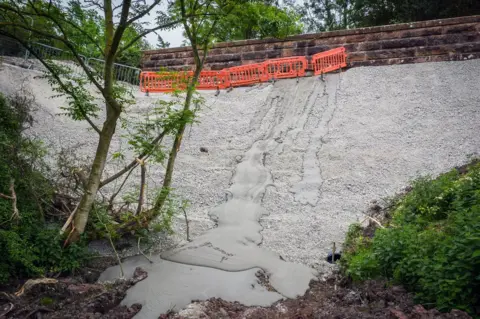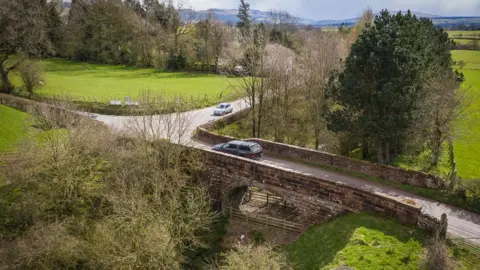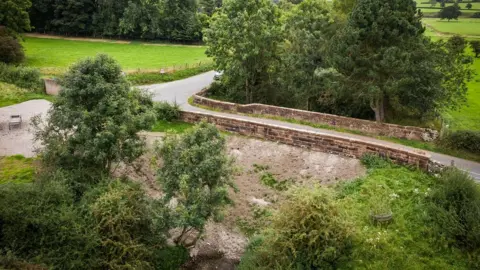Great Musgrave bridge: Hundreds object to concrete infill remaining
 The HRE Group
The HRE GroupMore than 800 people have objected to hundreds of tonnes of concrete underneath a Victorian arched bridge.
The government's roads body, National Highways (NH), said Great Musgrave bridge in Cumbria had been at risk of collapse if used by heavy vehicles.
Critics of the work called it "cultural vandalism" and Eden District Council said the concrete needed retrospective planning permission to remain.
NH said the infill was "vital to public safety and preserving the structure".
Head of the body's historical railways estate programme, Hélène Rossiter, said: "We've committed to reversing it if a viable future use for the track bed beneath the bridge is found, that has all necessary approvals and is ready to be delivered."
 The HRE Group
The HRE GroupA consultation on allowing the concrete to remain, which ends on Monday, received 837 objections, 29 comments and two supportive submissions.
The council is expected to make a decision in June.
Upper Eden Railway Heritage Partnership chair Phil Dew said NH had ignored objectors and acted with "total impunity".
"This was a case of cultural vandalism and desecration of a highly-valued structure," he said.
"Any issues would have been far better resolved by maintaining the bridge in a proper way."
Graeme Bickerdike, from the HRE Group which campaigns for the retention of the historical railway estate, said agreement by NH to seek planning permission for all future infill schemes was "positive steps in a better direction".
 HRE
HREMr Bickerdike called on NH to "draw a line under its damage" by removing the infill, but said the body had "raised the possibility of an appeal to the Secretary of State if planning permission is refused".
NH said even if the concrete was removed, the bridge would still need strengthening at an estimated cost of £431,000.
It denied it had used emergency powers to carry out the work and said Eden Council had "considered the works to be permitted development".
However, HRE said the council had recommended NH stop work while planning requirements were reviewed but that NH refused and invoked emergency powers to continue.

Follow BBC North East & Cumbria on Twitter, Facebook and Instagram. Send your story ideas to [email protected].
